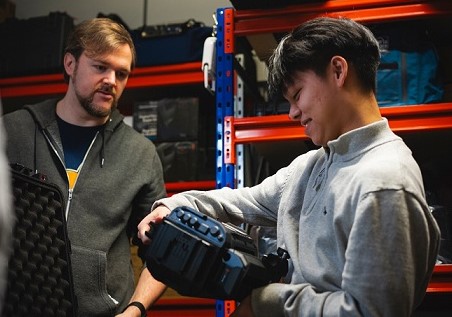New figures show that one in six (16%) people with a deadly inherited heart condition are only diagnosed after having a cardiac arrest, whilst a fifth (18%) of people are diagnosed after a sudden death in the family. The figures have been released by the British Heart Foundation (BHF) as part of their In Your Genes campaign, which aims to raise awareness of inherited heart conditions and highlight the urgent need for better diagnosis these conditions, so people can be identified before a tragedy or life-threatening cardiac arrest.
The BHF estimates that around 54,000 people in the West Midlands have a faulty gene which puts them at an unusually high risk of developing heart disease or dying suddenly at a young age [2]. Each child of someone with an inherited heart condition has a 50 per cent chance of inheriting the same faulty gene. But the majority of people remain undiagnosed. In the UK it is estimated that at least 12 young people (aged under 35) die every week from an undiagnosed heart condition.
The BHF survey of almost 200 people with inherited heart conditions from across the UK also found that nearly half of people (48%) were not diagnosed with their inherited heart condition until they were over the age of 40. The heart research charity is urging people to speak to their family about any early sudden deaths or premature heart disease in the family, which might have been caused by an inherited heart condition.
We now know about many of the genes which cause inherited heart conditions, thanks in-part to research funded by the BHF. However more research is urgently needed to better detect and treat these conditions to stop the devastation brought to loved ones, who could also be at risk themselves. Once someone has been diagnosed with an inherited heart condition, genetic testing should be carried out on first-degree relatives – a process called cascade testing. Genetic testing on family members can identify individuals who carry the faulty gene and steps can be taken to monitor individuals and reduce the risk of sudden death, such as surgery, medication or lifestyle changes.
Professor Sir Nilesh Samani, Medical Director at the British Heart Foundation, said:
“It is extremely important that family members are offered genetic testing when there’s a history of sudden death or premature heart disease in a family. Once diagnosed, many of these conditions are manageable with medication or ICDs, and can prevent needless deaths.
“All too often, people aren’t familiar with their family history, or they aren’t aware that a sudden death might be linked to an underlying heart condition.
“We need to improve awareness of these conditions, and ensure that people have equal access to cascade genetic testing across the UK. If you have a family history of unexplained sudden deaths in your family, please speak to your GP or call our Genetic Information Service on 0300 456 8383.”
Twelve year old Owen Steatham, from Birmingham, was just nine when he collapsed after suffering a cardiac arrest on his way home from school. Thankfully, paramedics were at the scene quickly and managed to save his life using a defibrillator. In hospital tests revealed that Owen was living with the inherited heart condition hypertrophic cardiomyopathy (HCM) and was fitted with an ICD. As HCM is an inherited heart condition, the rest of Owen’s family have now been tested and it was revealed that his Dad and younger brother Riley (aged 7) are carrying the faulty gene. They are now being monitored so that they can be treated if they too develop the condition.
Owen’s father, David, 37, said: “We know that genetic testing has saved lives in our family. My uncle was diagnosed with the condition after Owen’s diagnosis, which led to him having an ICD fitted. Since then his ICD has delivered a shock to his heart after it went into a dangerous rhythm. Without the diagnosis and ICD he might not be alive today. Owen has also had 10 shocks from his ICD since his diagnosis, which has literally saved his life.
“My youngest son Riley, who’s just 7, and I have also got the faulty gene. This genetic testing means we are being monitored so that we can be treated if we develop this condition. I am so incredibly grateful to the genetic testing service. No one should have to go through what Owen went through.”
















